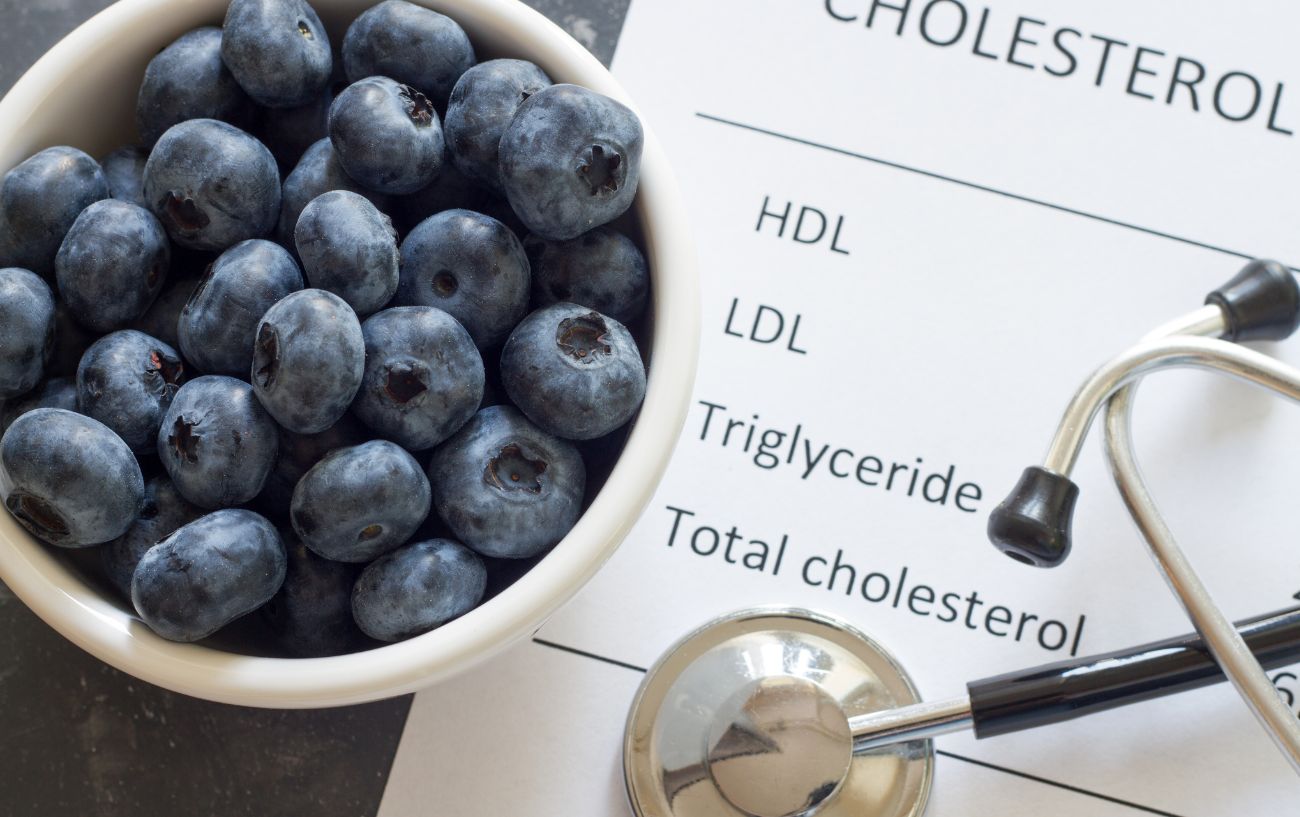One of the main nutrients that I consistently find to be questioned about in the diet of many runners, triathletes, weightlifters, everyday gym athletes, and ultrarunners that I work with as a Certified Nutrition Coach is cholesterol.
In fact, the motivation for many of the initial consults when people want to start working with a nutrition coach to support their athletic performance is because they have been told they have high cholesterol or high cholesterol plus excess body weight.
You dont have to be super fit to have good cholesterol levels, yet you dont have to be overweight to have high cholesterol levels. High cholesterol can be caused by numerous factors, including genetics.
That isnt to say that you cant lower cholesterol levels through lifestyle changes such as diet and physical activity. But, what is a good cholesterol level? What should your cholesterol blood test numbers actually be?
In this guide, we spoke with Dr. Gil Blander, Ph.D., to get the best advice on optimal cholesterol levels, good cholesterol levels (LDL and HDL), and factors that can cause high cholesterol.
Lets get started!

What Is LDL Cholesterol?
Dr. Gil Blander, Ph.D., Founder and Chief Scientific Officer at InsideTracker, explains that LDL cholesterol, also known as low-density lipoprotein cholesterol, is a type of cholesterol that can be harmful if it builds up in your arteries.
[LDL cholesterol] is often referred to as bad cholesterol because high levels of LDL can lead to blood vessel damage, restricted blood flow, and blockages, increasing the risk of heart attacks, strokes, and heart disease, explains Dr. Blander.
It is important to monitor and manage LDL cholesterol levels for optimal heart health.
What Is a Good LDL Cholesterol Level?
Dr. Blander explains that maintaining a low LDL cholesterol level is important for heart health because high LDL levels can contribute to plaque formation in the arteries, leading to atherosclerosis.
Atherosclerosis is a condition characterized by a hardening and narrowing of the arteries, which can increase the risk of heart attack, stroke, high blood pressure, and heart disease, among other health problems.

This is due to the fact that it restricts blood flow and decreases the pliability and patency of your blood vessels, making it harder for blood to travel around your body to the necessary tissues.1Galkina, E., & Ley, K. (2009). Immune and inflammatory mechanisms of atherosclerosis (*). Annual Review of Immunology, 27, 165197. https://doi.org/10.1146/annurev.immunol.021908.132620
By keeping LDL cholesterol levels within a healthy range, you can help reduce the risk of these conditions and promote better heart health, advises Dr. Blander.
However, there are some general guidelines for healthy levels of LDL cholesterol:
A good level of LDL cholesterol is generally considered to be less than 100 mg/dL (milligrams per deciliter), shared Dr. Blander, adding that LDL levels less than 70 mg/dL are considered very good based on personalized criteria InsideTracker provides to its users.
What Is HDL Cholesterol?
The counterpart of LDL cholesterol is HDL cholesterol, which is high-density lipoprotein cholesterol.
HDL cholesterol is often referred to as “good cholesterol.”
HDL cholesterol helps remove excess bad cholesterol from the bloodstream and returns it to the liver, where it can be broken down and eliminated from the body, explains Dr. Blander.
Having high levels of HDL cholesterol is beneficial because it helps protect against heart disease by reducing the buildup of plaque in the arteries and promoting better cardiovascular health.

What Is a Good HDL Cholesterol Level?
In contrast to good LDL levels (where you want to have a lower LDL cholesterol value), Dr. Blander says that the higher your HDL cholesterol (to a certain point), the better for optimal heart health.
An adequate level of HDL cholesterol is generally considered to be at least 40 mg/dL, with 60 mg/dL considered optimal, suggests Dr. Blander. More is generally better, but theres also such a thing as too much (depending on your demographics).
Dr. Blander says that having higher levels of HDL cholesterol is beneficial for your heart health because HDL cholesterol helps remove excess LDL cholesterol from the bloodstream and reduces the risk of plaque buildup in your arteries.
He says that women tend to have higher HDL cholesterol levels than men.
This is partially due to hormonal differences between the sexes, shares Dr. Blander. Estrogen, a hormone found in higher levels in women, has been shown to increase HDL cholesterol levels, so theres a slight difference detected there on a population level.

What’s A Good Cholesterol Level?
According to the American Heart Association, total cholesterol refers to your serum LDL cholesterol level plus your HDL cholesterol level plus 20% of your serum triglycerides.2American Heart Association. (2017). What Your Cholesterol Levels Mean. Www.heart.org. https://www.heart.org/en/health-topics/cholesterol/about-cholesterol/what-your-cholesterol-levels-mean
Total cholesterol level: LDL + HDL + (0.2 x triglycerides)
According to the Centers for Disease Control and Prevention (CDC), normal cholesterol test results are as follows:3CDC. (2020, February 21). Cholesterol Information | cdc.gov. Www.cdc.gov. https://www.cdc.gov/cholesterol/
| Total Cholesterol | Less than 200 mg/dL |
| LDL or bad cholesterol | Less than 100 mg/dL |
| HDL or good cholesterol | 40 mg/dL or higher |
| Triglycerides | Less than 150 mg/dL |
Therefore, high cholesterol is considered to be when your total cholesterol is above 200 mg/dL or your LDL cholesterol is above 130 mg/dL.
The clinical term for high cholesterol is hypercholesterolemia.
Bad cholesterol levels also do tend to increase in some people over time, which is why its important to increasingly monitor as you age, notes Dr. Blander.
However, just because there is a trend towards increasing LDL levels in older adults does not mean that this is healthy or optimal.

What Causes High Cholesterol?
High cholesterol is common in the United States and other Western countries.
More than 1 in 3 American adults are diagnosed with high cholesterol, and probably even more adults have undiagnosed high cholesterol or are at risk for high cholesterol levels.
Although simple lab tests can tell you if you have high cholesterol, many Americans still dont get routine cholesterol blood tests.
In fact, according to a recent survey, 40% of Americans reported that they dont go to the doctor for medical tests, often citing cost and time as barriers.
However, getting your cholesterol levels checked is important to assess your risk because high levels are associated with an increased risk of heart disease, stroke, cardiovascular disease, metabolic syndrome, and other adverse health effects, including all-cause mortality.
There are various high cholesterol risk factors, some of which are modifiable based on lifestyle factors, whereas others are static and may not be possible to change.
According to the American Heart Association,4WHAT DOES MY LDL CHOLESTEROL NUMBER MEAN? (n.d.). Retrieved December 6, 2023, from https://www.heart.org/-/media/Files/Health-Topics/Cholesterol/What-does-LDL-mean.pdf here are some of the main risk factors for high cholesterol levels:5National Heart, Lung, and Blood Institute. (2022, March 24). Blood Cholesterol – Causes and Risk Factors | NHLBI, NIH. Www.nhlbi.nih.gov. https://www.nhlbi.nih.gov/health/blood-cholesterol/causes

Non-Modifiable High Cholesterol Risk Factors
- Genetics: A family history of high cholesterol, which is a condition called familial hypercholesterolemia, can predispose you to above average cholesterol levels.
- Age: LDL cholesterol can increase with age.
- Race and ethnicity: People of Asian, Indian, Filipino, Japanese, and Vietnamese descent may have higher LDL cholesterol levels.
- Sex: Until menopause, women tend to have lower LDL cholesterol levels than men. After menopause, average cholesterol levels for men vs women are similar.
Modifiable High Cholesterol Risk Factors
- Being overweight or obese
- Poor diet: According to research, saturated fat, found in fatty meat, butter, and whole-fat dairy, trans fat, high sugar intake, and high sodium intake can also increase cholesterol levels. The worst offenders are foods with trans fats, which are found in the hydrogenated oils used in baked goods, pastries, margarine, etc.
- Not being physically active: A lack of consistent exercise can cause low HDL cholesterol levels (good cholesterol).
- Tobacco use and exposure to secondhand smoke
- Heavy alcohol drinking
According to the National Heart, Lung, and Blood Institute (NHLBI), the DASH Diet and the Therapeutic Lifestyle Changes (TLC) eating plan are good diets to follow to lower cholesterol.6Blood Cholesterol – Treatment | NHLBI, NIH. (n.d.). Www.nhlbi.nih.gov. https://www.nhlbi.nih.gov/health/blood-cholesterol/treatment

These heart-healthy diets focus on eliminating processed foods, reducing sodium, and focusing on nutritious, natural foods such as vegetables, fruits, whole grains, and lean proteins.
Additionally, the best diets to lower cholesterol levels incorporate heart-healthy fats such as the omega-3 fatty acids found in salmon and other fatty fish, as well as monounsaturated fats and polyunsaturated fats found in nuts, seeds, avocados, and other plant-based foods.
These types of healthy dietary fats can reduce inflammation in the body, decrease LDL cholesterol levels, and increase HDL cholesterol levels, improving your overall lipid profile and the inflammation that often underlies cardiovascular disease.
Check out our free 7-day low-cholesterol diet guide here.
If you are concerned about whether or not you have a good cholesterol level, make an appointment with your healthcare provider to see if you are high risk and what you can do about it.




